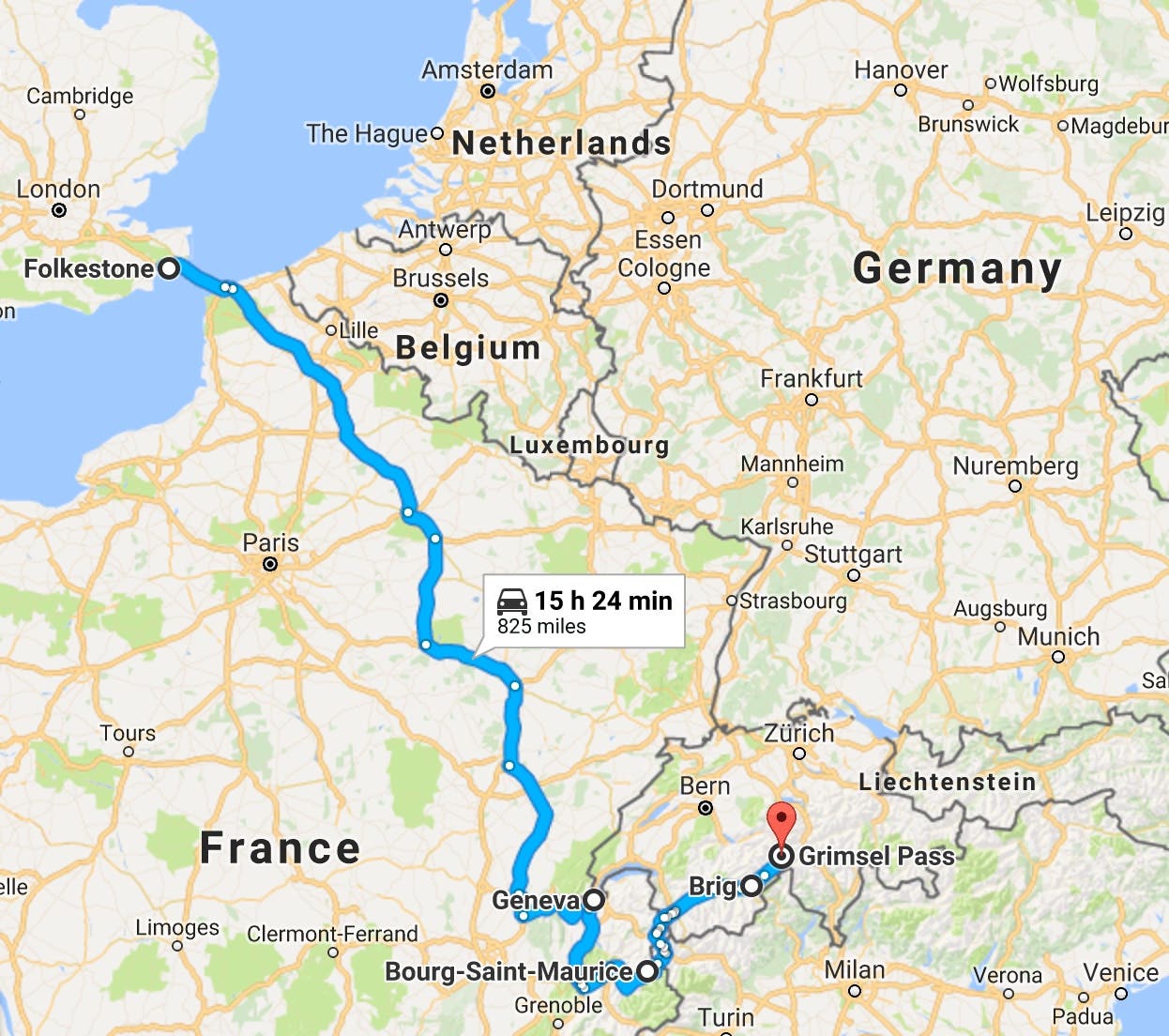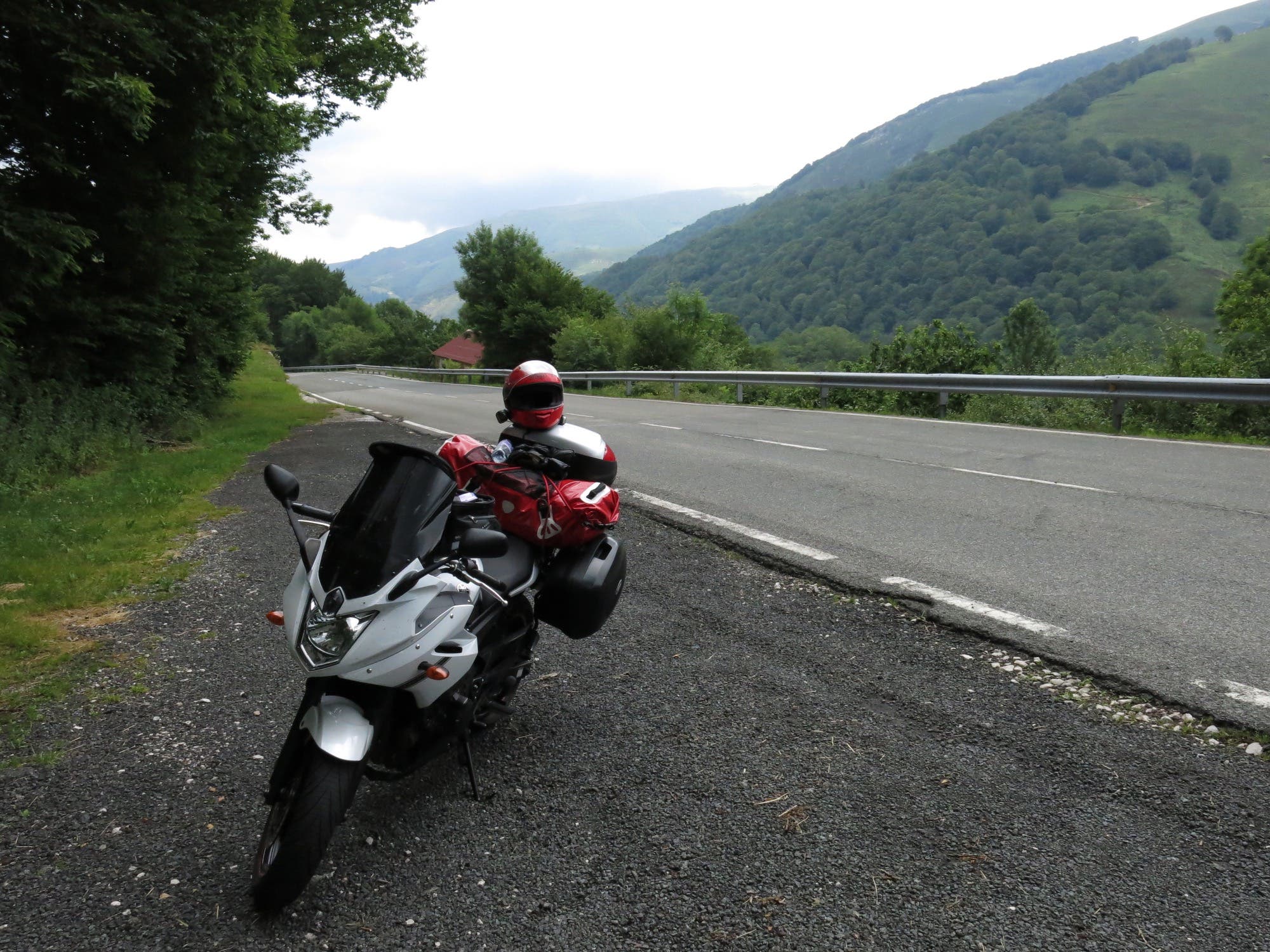Summer is finally with us in the UK, with temperatures breaking 20 degrees regularly and blue sky peeking through at last! Head further south though and the roads get quieter, the temperatures increase and the blue sky widens to cover the whole sky for a lot of summer - not only that you get spectacular mountains and all kinds of food and drink to delve into. Riding into Europe is a significant undertaking however, and there are a few things you should know and do to make your trip that bit smoother.

Your bike needs to be up to the challenge of facing thousands of miles without necessarily getting much mechanical attention. Newer, modern bikes can often take this in their stride providing the maintenance has been done as it should be, however some older bikes will need to be in tip-top condition to make the trip, some older bikes will even need a headlight converter as their light beams aren't flat. A recent oil change, a set of sport-touring tyres with plenty of tread, and a check of all aspects of the bike are all good things to have done.

Secondly you need some kind of idea of where you're going. A trip can swiftly dissolve into a nightmare if you've no idea where you're going. You don't need to book or plan the whole trip in advance necessarily, although it can cut costs and headaches, but booking a hotel or campsite a night or two before you get there will ensure you don't turn up at a fully booked location in the dead of night and nowhere else to go! An ultimate goal, such as the Grossglockner Pass in Austria is a great idea as you can build a trip around it, but avoid doing much more than 200 miles a day if you want to see anything. You'll soon get an idea of what's achievable for you, or a group you're travelling with, and can adjust accordingly.

Taking your bike for thousands of miles without support means you need to be much more self-reliant. Of course breakdown cover is a must-have for full-on disasters, but being able to fix minor issues yourself speedily is much preferable as it'll often mean you can complete your trip. A puncture repair kit is an absolute essential - what kind depends on how much space you have, but at least one of the goo ones that you can put in the tyre as a stopgap is minimum to get you to a tyre shop. A basic toolkit for tightening or undoing any bolts on the bike is near essential too, for removing fairings to access lightbulbs or adjusting chains, and often included OEM toolkits are very little use and deform very readily. Speaking of chains, some chain lube is required too thanks to miles you'll be doing, and the weather you might ride through. Tie wraps and duct tape are very handy additions too, for both minor repairs and waterproofing in a pinch.
You'll find different countries have different requirements for what you're legally required to ride with - the UK is very lax on this. A basic first aid kit, spare light bulbs, reflective vest and a spare pair of glasses if you wear them are often on EU countries' lists - but they also make a lot of sense for long trips where you can stand to damage things. It's uncommon for police to pull you over to check for these items, but if you've already been naughty you can expect being checked. Documentation is also important, keep your passport, bike licence, V5 bike registration, EHIC (European Health Insurance Card) and insurance certificate handy and safe at all times. Copies kept somewhere else aren't necessarily a bad idea either, it just depends on how paranoid you are! A blue GB symbol on your numberplate, or a GB sticker on your bike are also required. You can ditch the breathalysers and helmet stickers for France by the way, they're no longer enforced so don't waste the money or time in getting them.
Restrictions on electronics on bikes are commonplace in Europe too - speed camera detectors (or sat navs with camera locations) are disallowed in most EU countries so don't get caught with them or you'll be getting a hefty fine. Helmet cameras or bike mounted ones are technically illegal too in a lot of EU countries, but, like with the safety kit on bikes, if you're good you probably won't get pulled for having them with you and recording.
I believe it's worth bringing a camera with you however, and a helmet camera gives a unique perspective on the riding parts of your trip which you'll love to look back on.
The final thing to ensure is in good condition is you yourself. Long days in the saddle can take a serious mental and physical toll, so it's absolutely worth getting some practice for long days riding, or simply take your limitations into account when planning a route. You'll be experience unfamiliar traffic rules, hotter weather (hopefully) and riding that you wouldn't normally do in your daily life, all of which will make you tire faster. Keeping hydrated will mitigate this slightly, and avoiding caffeine is advisable as you'll end up stopping for the toilet more otherwise! Eating decent food, not just sugary snacks, will keep you alert for longer and prevent any sugar crashes. It's all well and good getting irritated in normal life, but if you're riding for hours and you take a wrong turn it can really drive you a bit mad if you're already in a bad mood.
Wearing appropriate gear is going to help you out too, as well as helping you survive injury in the event of a spill. Layering will mean you can change your gear as required for the conditions. A method of waterproofing yourself completely is definitely needed, and a couple of layers to keep you warm if temperatures drop unexpectedly, which they can up in the mountains. Making sure all your gear is in good nick will reduce the chance that you'll need to use that duct tape too! A spare pair of gloves and a couple of spare pairs of socks wouldn't go amiss too, getting into soggy boots and gloves is miserable in the morning.
Ultimately, you want to enjoy your trip as much as possible, and for some the idea of making a trip safe and smooth is abhorrent, but staying legal just saves aggro for everyone and won't reduce the spirit of adventure.
Like us on Facebook, follow us on Instagram and Twitter, subscribe to our mailing list to keep up to date on events happening at Bike Stop throughout the year, drop by to have a chat, have a delicious Lavazza coffee and a cake, or view our large motorcycle gear range.






